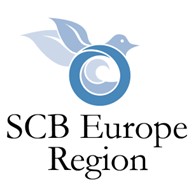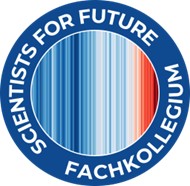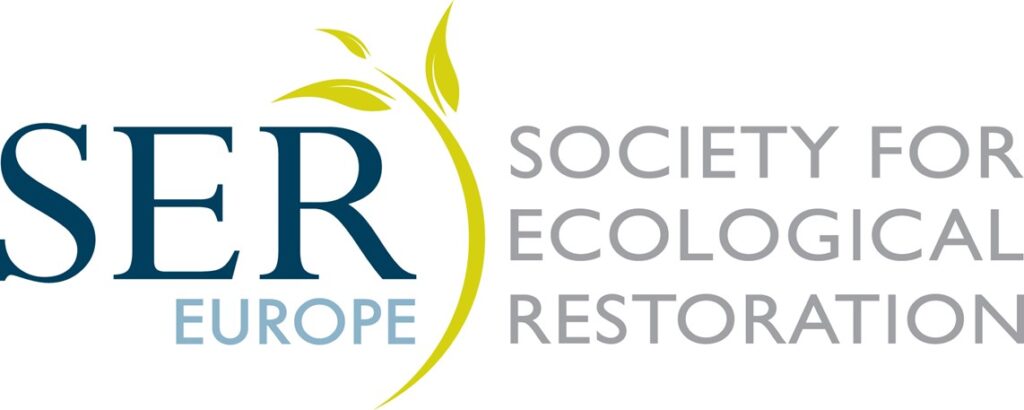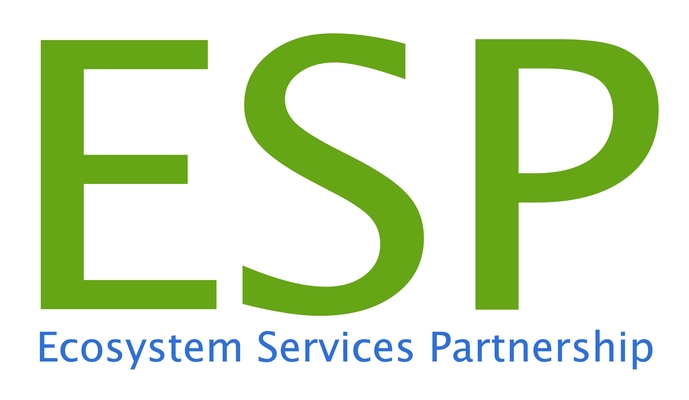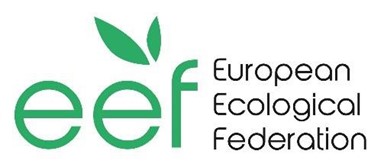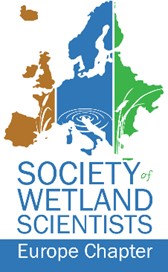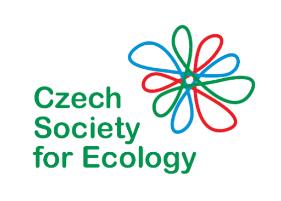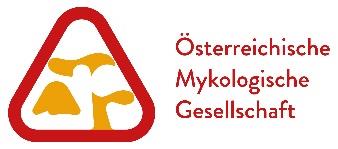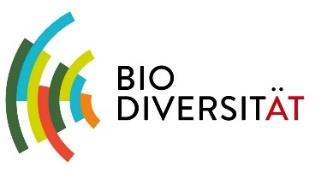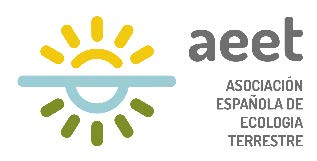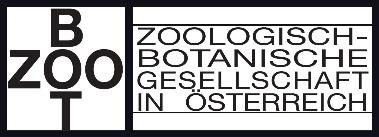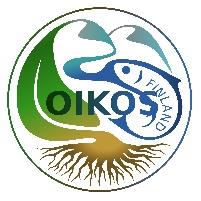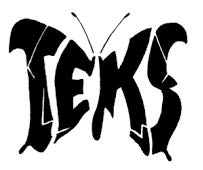Europe For Nature
Open Brief
Wetenschappers luiden alarmklok: terugdraaiing van EU-milieuwetgeving en -beleid brengt de toekomst van EU-burgers in gevaar
Beste beleidsmakers en politici,
Als wetenschappers kijken wij met grote bezorgdheid naar de voorgenomen deregulering van milieunormen en -regels in de EU als gevolg van de huidige maatschappelijke weerstand tegen de Green Deal. De ontmanteling van de Green Deal, die zorgde voor een duurzame en rechtvaardige toekomst voor alle inwoners in Europa, ondermijnt de agenda van de EU, haar internationale verplichtingen en haar rol als wereldspeler om zorg te dragen voor een leefbare planeet. Daarnaast stellen we met zorg vast dat al geïmplementeerde maatregelen gerelateerd aan duurzaamheid teniet worden gedaan. Die maatregelen waren er niet voor niets: de planetaire grenzen worden dusdanig overschreden dat de toekomst van de maatschappij in gevaar is. Hieronder zetten we de belangrijkste beslissingen en ontwikkelingen uit Europa op dit vlak waar we grote zorgen bij hebben uiteen:
1. Verordening voor Duurzaam Gebruik van gewasbeschermingsmiddelen (SUR)
Het oorspronkelijke voorstel van de Europese Commissie voor de SUR sloot aan bij sterk bewijs dat de brede en toenemende aanwezigheid van agrochemicaliën in ons voedsel en water negatieve gevolgen heeft voor de menselijke gezondheid, andere organismen en het milieu. Ondanks langdurige onderhandelingen die leidden tot aanzienlijke afzwakking van de verordening, werd de SUR afgewezen door het Europees Parlement en vervolgens ingetrokken door de Commissie. Daarmee negeerden zij een op bewijs gebaseerde open brief getekend door 6000 wetenschappers en een oproep van meer dan 1 miljoen burgers oproep van meer dan 1 miljoen burgers ten gunste van de SUR. Zorgen om menselijke en planetaire gezondheid blijven daardoor bestaan.
2. Gemeenschappelijk Landbouwbeleid (GLB)
Zowel het Europese Parlement als de Raad van de Europese Unie stemden in met een voorstel van de Europese Commissie om de milieueffectiviteit van vijf van de negen basisnormen van het Gemeenschappelijk Landbouwbeleid te verzwakken – waaronder het elimineren van subsidies voor/noodzaak van braakland op bouwland en het vergroten van de mogelijkheden om grasland om te zetten in bouwland. Er is geen wetenschappelijk bewijs dat de afzwakking van deze vijf normen de kernproblemen waar boeren mee te maken hebben aanpakken. Er zijn wel aanwijzingen dat deze afzwakking de risico’s van de toekomst voor deze sector vergroot door versnelling van bodemerosie, landdegradatie en biodiversiteitsverlies, verergering van de potentiële gevolgen van extreme weersomstandigheden, en verdere achteruitgang van belangrijke ecosysteemdiensten die cruciaal zijn voor de landbouw, zoals plaagbestrijding, bestuiving en watervasthoudend vermogen van de bodem. Wetenschappers zijn bezorgd dat hiermee toekomstige generaties worden opgezadeld met alle problemen van dien.
3. Natuurherstelwet (NRL)
Tachtig procent van de habitattypen in de Europese Unie verkeert in slechte staat. De snelle algehele milieuverslechtering toont de urgentie van de NRL om ecosystemen te herstellen. Het is welbekend dat natuurherstel kostenefficiënt is. De positieve bijdragen van natuur aan de samenleving, waaronder de menselijke gezondheid, voedselzekerheid, veerkracht tegen extreme weersomstandigheden en koolstofopslag, zijn herhaaldelijk benadrukt en onderbouwd door wetenschappers, maatschappelijke organisaties en bedrijven. Na een intensief onderhandelingsproces tussen het Europese Parlement, de Europese Raad en de Europese Commissie, werd de NRL uiteindelijk goedgekeurd door het Parlement. Het wordt nu tegengehouden door enkele landen die gebruik maken van procedurele bepalingen ter bescherming van minderheden, in strijd met een gevestigde wetenschappelijke consensus en een oproep van meer dan 1 miljoen burgers ten gunste van de NRL.
4. Voorstel van de Commissie voor vrijstellingen in de Nitraatrichtlijn
De huidige plannen van de EU-Commissie om de verplichtingen binnen de Nitraatrichtlijn te versoepelen, kunnen leiden tot een toenemende toepassing van nitraat in de landbouw. Gevolgen zijn onder andere de verslechtering van de kwaliteit van oppervlakte- en grondwater, evenals negatieve effecten op de ecosystemen in de Noordzee en de Oostzee. Het stikstofoverschot dat al uitzonderlijk hoog is in verschillende regio's van Europa, waaronder Nederland, zal met de voorgenomen nitraatversoepeling opnieuw de uitstoot van broeikasgassen uit de landbouw verhogen en de vermesting vergroten. Deze vrijstelling van de nitraatrichtlijn is in strijd met de inzet van de EU om klimaatneutraliteit na te streven.
5. Kader voor Duurzame Voedselsystemen (FSFS)
Het voorstel van de Commissie voor een FSFS, dat gepland stond voor publicatie in de herfst van 2023, zou veel van de huidige zorgen van zowel boeren als consumenten kunnen aanpakken. Het feit dat het voorstel van de Commissie stilletjes van de agenda is verdwenen, ondanks dat het klaar was voor publicatie, rechtvaardigt een maatschappelijk debat.
Andere bekende voorbeelden Bovenstaande zijn slechts enkele belangrijke voorbeelden van de terugdraaiing van het Europese duurzaamheidsbeleid. De bekendste onderwerpen bij het publiek zijn de hernieuwde goedkeuring van het gebruik van glyfosaat voor nog eens 10 jaar, de degradatie van de ‘Bodemgezondheidswet’ tot niet meer dan bodemmonitoring, lopende discussies over het verlagen van de beschermingsstatus van grote carnivoren zoals de wolf, oproepen om de ontbossingsverordening af te zwakken of zelfs te annuleren, en het stopzetten van de discussies over strikte bescherming van oerbossen. Deze beslissingen en processen vertegenwoordigen een algemene geest van terugdraaiing van milieunormen en -regels,waarvan sommige het resultaat zijn van tientallen jaren politieke inspanningen, waarvan de noodzaak sterk wordt ondersteund door wetenschappelijk bewijs..
Zorgwekkend Bij te veel besluitvormers in de EU lijkt een anti-milieusentiment de boventoon te voeren. Dit is om verschillende redenen zorgwekkend: Ten eerste,omdat veel van de rechtvaardiging voor deze beslissingen gebaseerd is op misinformatie. Ten tweede,omdat deze beslissingen sterk lijken te worden beïnvloed door de specifieke belangen van bepaalde subgroepen en economische bedrijven binnen een smal spectrum van de samenleving. Ten derde,omdat deze beslissingen in strijd zijn met gestelde Europese doelen om te handelen naar de principes van duurzaamheid. . En tenslotte omdat de EU als mondiale voorloper op het gebied van klimaat-, biodiversiteits- en milieuwetgeving nu zeer betreurenswaardige signalen naar de rest van de wereld stuurt.
In een periode van meerdere crises, die voornamelijk het gevolg zijn van het overschrijden van planetaire grenzen door menselijk handelen, vinden wij het onverantwoordelijk dat Europese bestuurders er nu voor lijken te kiezen om de onderliggen oorzaken van deze crises te verergeren in plaats van te verminderen. Het overmatig gebruik van hulpbronnen van de aarde, het blijven uitstoten van broeikasgassen, vervuilende chemische stoffen en afval, waaronder (micro)plastics moeten urgent worden verminderd. Als wetenschappers zijn wij dan ook zeer bezorgd over de (voorgenomen) beleidskeuzes die deze oorzaken, waarin de rol van menselijk handelen onmiskenbaar is, versnellen. Wanneer we de gevaren overwegen die door deze beslissingen worden veroorzaakt, zien we ze als een schending van de kernprincipes van het Verdrag betreffende de werking van de Europese Unie (VWEU), zoals het preventiebeginsel, het voorzorgsbeginsel (VWEU Artikel 191) en de zorgplicht.
Wij roepen beleidsmakers op om:
- een duidelijke en ambitieuze agenda vast te stellen voor milieubescherming en de Green Deal voor de periode na de verkiezingen, waarbij milieukwesties serieus worden genomen omdat ze ernstige bedreigingen voor de samenleving vormen;
- bij twijfel wetenschappers te raadplegen om te voorkomen dat er op basis van misinformatie wordt gehandeld;
- de voorgenomen wijzigingen binnen het GLB terug te draaien, gezien de risico's op het vergroten van milieuproblemen en gezondheidsrisico's;
- de NRL goed te keuren als een dringende maatregel om de uitvoering van bestaande beleidsmaatregelen om de biodiversiteitscrisis aan te pakken beter te coördineren en te complementeren, en om de veerkracht van de samenleving tegen klimaatverandering te verbeteren;
- verdere verwatering van milieuregels en -beleid (Nitraatrichtlijnen, Ontbossingsverordening) met grote inzet te vermijden.
We roepen ten slotte burgers, maatschappelijke organisaties en politieke partijen op om verantwoord beleid te ondersteunen dat een veiligere toekomst voor iedereen binnen de planetaire grenzen waarborgt.
Met urgente groet,
The Society for Conservation Biology – Europe Region
Scientists for Future (Interdisciplinary Scientific Panel)
The Society for Ecological Restoration Europe
ALTER-Net
Ecological Society of Germany, Austria and Switzerland
European Ecological Federation
Netherlands Ecological Research Network
EuropeForNature
Ecosystem Services Partnership – European region
The International Mire Conservation Group
Society of Wetland Scientists
Austrian Mycological Society
Austrian Biodiversity Council of the Austrian Biodiversity Network
Hungarian Ecological Society
Czech Society for Ecology
Spanish Association for Terrestrial Ecology
Society for Tropical Ecology
Austrian Zoological-Botanical Society
Oikos Finland
Turku Zoological and Botanical Society
The Society for Conservation Biology – Europe Region is dedicated to facilitating, promoting, and advancing the scientific study and conservation of biological diversity. Info: https://conbio.org/groups/sections/europe
Scientists for Future (Fachkollegium) supports the global climate movement by providing facts and materials based on reliable and accepted scientific data to activists, politicians, decision-makers, educators and the general public. It is an independent and voluntary collective of scientists, researchers and academics from all kinds of disciplines, united by the deep concern for a shared future. Info: https://scientists4future.org/
The Society for Ecological Restoration Europe is the network that advances the science, practice, and policy of ecological restoration to sustain biodiversity, improve resilience in a changing climate, and re-establish an ecologically healthy relationship between nature and culture. Info: https://chapter.ser.org/europe/
ALTER-Net is the network of leading institutes from 21 European countries that share the goal of integrating their research capability to assess changes in biodiversity, analyse the effect of those changes on ecosystem services and inform the public and policymakers about this at a European scale. Info: https://alterneteurope.eu/
Het Ecological Society of Germany, Austria and Switzerland (GfÖ
–Gesellschaft für Ökologie e.V.) is dedicated to ecology in science and practice. Its membership centres in Germany, Austria and Switzerland. The Society supports ecological research and training, and promotes the exchange of ecologists in academic institutions, public administration and the private sector by organising annual meetings and working groups.
Het European Ecological Federation (EEF) enables cooperation between European ecological societies in order to promote the science of ecology in Europe. It is providing a forum for effective communication throughout the community of ecological scientists in Europe on matters of common interest by disseminating ecological knowledge through meetings, publications and other means.
The Netherlands Ecological Research Network (NERN)is the network of professional ecologists in the Netherlands where all universities and research institutes that have an ecology program participate. Info: NERN – The Netherlands Ecological Research Network
Het EuropeForNature initiative is a network of scientists that aim to illustrate citizens in Europe the importance of prioritising nature and sustainability, and aim to empower them to use their voice by: 1) Harnessing the collective expertise, insights and visions for a sustainable future of scientists across Europe; and 2) Demonstrating widespread public support for sustainable European policies through proactive engagement and advocacy efforts. https://europefornature.eu/
The Ecosystem Services Partnership (ESP) – European region ESP is a Worldwideglobal network, connecting over 3,500 people, to enhance the science, policy and practice of connects ecosystem services for scientists, practitioners, stakeholders, and policymakers at local, national, regional, and global scales. ESP aims to enhance communication, coordination and cooperation, and to build a strong network of individuals and organisations working on ecosystem services. Info: http://www.es-partnership.org/
Het International Mire Conservation Group (IMCG) is an international network of specialists who internationally promote, encourage and, where appropriate, co-ordinate the conservation and sustainable development of mires and related ecosystems; and internationally enhance the exchange of information and experience relating to mires and factors affecting them. IMCG encompasses over 550 contacts in almost 60 countries. International Mire Conservation Group
Het Society of Wetland Scientists (SWS) works to promote best practices in wetland research, education, conservation, preservation, restoration, and management. SWS has over 3,000 members in more than 60 countries. Home – Society of Wetland Scientists
Het Czech Society for Ecology (CSPE) is a professional society bringing together scientific, scientific-pedagogical and professional workers, students and other persons dealing with ecology. CSFE participate in the comprehensive, complex and systematic development of ecological disciplines, and in the promotion and implementation of research results, in nature protection and landscapes and expert activities in Central Europe. www.cspe.cz
Het Austrian Mycological Society (ÖMG) is a network of professional and amateur mycologists and is open to all interested people. Universities, research institutes and citizen scientists representing practical and scientific mycology and having a deep interest in fungi, including systematics, distribution, ecology and conservation, cooperate.
Members of the Austrian Biodiversity Council of the Austrian Biodiversity Network are researchers from various disciplines as well as experts in the fields of biodiversity, landscape design and nature conservation. The Austrian Biodiversity Network sees itself as an open, interdisciplinary community encompassing a wide range of specialist disciplines and transdisciplinary for science, politics, administration, business, NGOs and civil society. The common goal is to strengthen biodiversity and its ecosystem services in Austria.
https://www.biodiversityaustria.at/biodiversitaetsrat/
https://www.biodiversityaustria.at/netzwerk/
Hungarian Ecological Society is an NGO of Hungarian ecologist researchers containing 145 members. Its main tasks are organizing scientific conferences, meetings, courses, summer schools, as well as representing the opinion of ecologists for the society. https://www.ecology.hu
Het Spanish Association for Terrestrial Ecology (AEET) is an association that brings together nearly 1000 researchers in ecology from all the university centres and Public Research Institutions in Spain. The purpose of the AEET is to foster research in Ecology, to raise awareness and encourage public participation in matters of environmental interest and to promote the responsible application of Ecological knowledge
Het Society for Tropical Ecology (Gesellschaft für Tropenökologie e.V., GTÖ) promotes and communicates new and emerging knowledge among tropical ecologists and conservationists to advance the understanding of tropical ecosystems and their protection. GTÖ’s goal is to connect students and academics with an interest in tropical ecology from around the world to understand and preserve the biodiversity and functions of tropical ecosystems. GTÖ is currently Europe’s largest scientific association for tropical ecology research. https://soctropecol.eu
Austrian Zoological-Botanical Society (“Zoologisch-Botanische Gesellschaft in Österreich”; ZooBot) supports nature conservation and science (especially organismic biology, ecology, and research on biodiversity).Thus it offers a platform for scientists, students, teachers at universities as well as other educational institutions, museum curators as well as interested laymen, cooperating with many other associations and institutions. The society is one of the longest existing in Austria and has around 400 members. https://www.zoobot.org/
Oikos Finland is the ecological society of Finland bringing together researchers in the field of ecology and evolutionary biology.
Turku Zoological and Botanical Society (Turun Eläin- ja Kasvitieteellinen Seura; TEKS) is a scientific society in the city of Turku, Finland, founded in 1923. It has about 80 members. TEKS activities mainly focus on popularising biological sciences to general public by organising regular talks of Finnish biologists to a wider audience, by organising excursions to interesting nature destinations both in Finland and neighbouring countries, and by publishing local biological investigations.
Links to relevant publications and open letters by scientists
On the Common Agricultural Policy (CAP):
- Leopoldina (2020): Biodiversity and Management of Agricultural Landscapes, Published by the German National Academy of Sciences Leopoldina, Halle/Saale, https://bit.ly/3RVnXtW
- WBAE (2019): Designing an effective agri-environment-climate policy as part of the post-2020 EU Common Agricultural Policy, Statement of the Scientific Board for Food and Environmental Policy (WBAE) at the Federal Ministry for Food and Agriculture, Berlin. https://bit.ly/4aDojvb
- WBAE (2018): For an EU Common Agricultural Policy serving the public good after 2020: Fundamental questions and recommendations, Statement of the Scientific Board for Food and Environmental Policy (WBAE) at the Federal Ministry for Food and Agriculture, Berlin. https://bit.ly/4bKtLOk
- Pe’er et al. (2020): Action needed for the EU Common Agricultural Policy to address sustainability challenges, People and Nature 2 (2): 305-316, https://doi.org/10.1002/pan3.10080
- Pe’er et al. (2022): How
can the European Common Agricultural Policy help halt biodiversity loss? Recommendations by over 300 experts, Conservation Letters 15 (6): e12901. https://doi.org/10.1111/conl.12901 - Jongeneel, R.A. (2018): Research for AGRI Committee – The CAP support beyond 2020: assessing the future structure of direct payments and the rural developments interventions in the light of the EU agricultural and environmental challenges, European Parliament, Policy Department for Structural and Cohesion Policies, Brussels, http://bit.ly/2zStfOk
NRL and SUR:
- Pe’er et al. (2023) Scientists support the EU’s Green Deal and reject the unjustified argumentation against the Sustainable Use Regulation and the Nature Restoration Law. https://doi.org/10.5281/zenodo.8128624 – signed by 6000 scientists
On the Nature Restoration Law (NRL):
- Hering et al. (2023), Securing success for the Nature Restoration Law. Science 382, 1248-1250. DOI: 10.1126/science.adk1658; Open Access link
- SER Europe Legal Working Group (2024). 10 legal reasons to vote in favour of the EU Nature Restoration Law. https://serchapter2018.wpenginepowered.com/europe/files/2024/
- SER Europe Legal Working Group (2022). The EU Nature Restoration Law: Providing legal certainty in tackling the biodiversity and climate crisis. https://serchapter2018.wpenginepowered.com/europe/files/2023/05/EU-Nature-Restoration-Law-essential-for-legal-certainty.pdf
- SER Europe (2022). SERE2022 Declaration on the European Commission Proposal for a Regulation on Nature Restoration. https://chapter.ser.org/europe/declaration-on-eu-nature-restoration-law-2022/
On carnivores in Europe:
- Revilla et al. 2023. Institutional Science for Policy Report on the damages produced by and the conservation status of wolves in Europe. Estación Biológica de Doñana CSIC. https://digital.csic.es/handle/10261/337169
On the Green Deal as a whole:
Schebesta, H. & J.J.L. Candel (2020): Game-changing potential of the EU’s Farm to Fork Strategy. Nat Food 1, 586–588. https://doi.org/10.1038/s43016-020-00166-9
